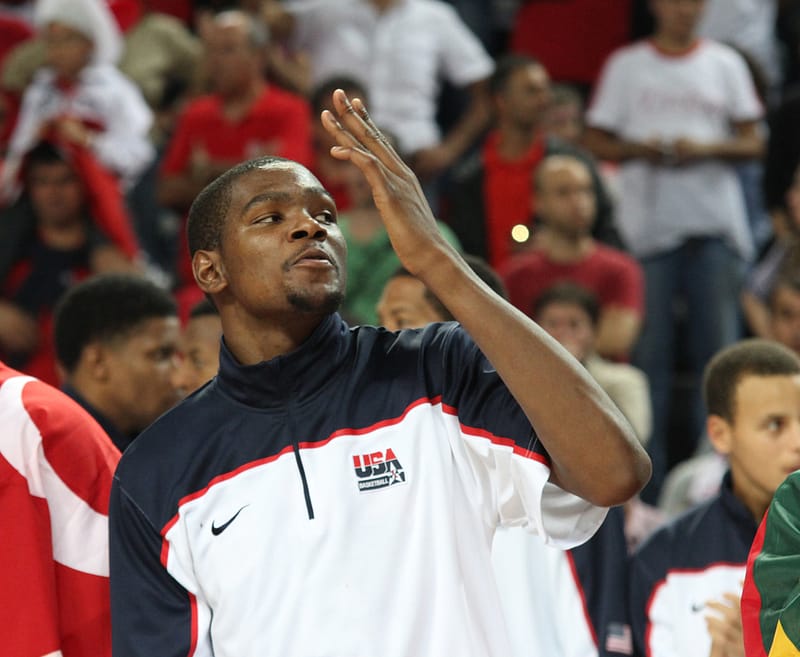In game 3 of the 2017 NBA Finals, Kevin Durant hit an open 3 point shot that gave his team the lead with a minute remaining – a lead that his team kept on its way to a 5 point victory that gave the team a commanding 3 games to none lead in the best of seven series.
Now if you’re not a basketball fan, let me tell you this: Kevin Durant is a basketball player. A really good one. Although not an NBA Champion (yet), he has won consistently at every level. He is an All-Star every year. A Hall of Famer. Regarded by many as one of the top 5 players at his position. Ever.
After game 3 ended, Durant was asked by a reporter:
“What gave you the confidence that you could make that shot?”
Now let me tell you something else about Durant. He is seven foot tall. Built like a string bean. The man possesses quickness that a man of his stature should not have. Even in a world of giants, he stands out. In other words, Durant is athletically gifted.
Now back to that question.
Durant could have responded in any number of ways. How would you respond to that question? Forget the words for a second, how would you respond emotionally?
Yeah.
He could have easily said:
Are you kidding me?
Or
Have you not been watching this game, this series or my career? I have hit that shot more times than I can count. I became the third player ever to score more than 25 points in all 8 of my first Finals games. I know how to score.
Or
I knew that if I shot it, G-d would make sure it went in.
Instead, he answered,
“I’ve been practicing for that shot my whole life.”
So what is notable about this? What can you take away from this brief 2 minute exchange?
First, lets look at the intent of the question. It was a reporter trying to fill some time. Could she have asked a different question? Yes. Could Durant have assumed some negative intent in the question she chose to ask? Yes. Did he? I don’t know, but if he did, he didn’t allow it to guide his response.
If he did, perhaps he would have gone with the first answer. A gut emotional response, confrontational in nature.
Or he could have taken it a step further and validated why the question shouldn’t have been asked in the first place.
Or he could have said it was chance or divine intervention, depending on your beliefs. Of course there are players on the other team as well – and while his prayers may have been answered, theirs were not.
Instead, he acknowledged his accomplishment. And told you why.
Shooting that shot in the gym hundreds of times per day.
Learning from times where he failed.
Building his mental toughness and resiliency to believe he will be successful
So what can you take from this?
As a leader, you get asked questions all the time. How are you responding?
Because your responses say a lot about you, who you are and what you believe.
And your teams are watching. And learning.

